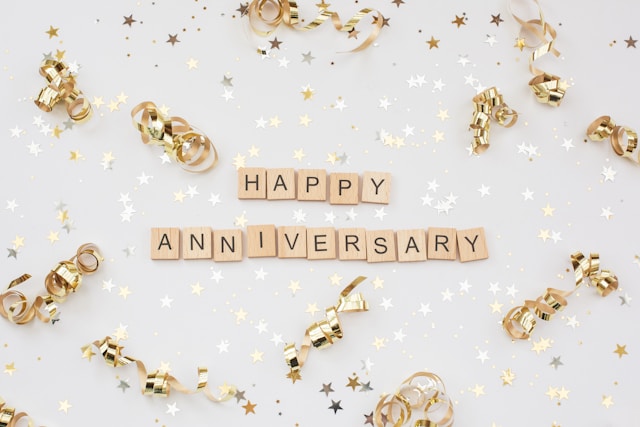Therapeutic support groups facilitated by a professional therapist
I started attending a Codependency support group at the suggestion of my therapist. The opportunity to learn how codependency manifested in my life intrigued me.
I liked being accountable to everyone in the group. Accountability meant I could share my struggles and my “atta girl” moments. In addition, the group helped me recognize other aspects of my life where codependency was challenging for me. For example, I soon realized I was more of a codependent parent than a wife. Group members and the therapist offered their insights and different perspectives, which I found very useful. We didn’t work out of a particular workbook, but the therapist often sent us home with things to think about throughout the week.
The only complaint I have about this group is people hesitated to share first in the group, sometimes delaying the start of the sessions. We often joked that when you have a room of codependents, no one wants to take up time for themselves because it might be time someone else could use. So frequently, the therapist had to nudge us to start sharing because no one wanted to go first.
Although the other groups I mentioned were helpful, I think you get a different experience in a therapeutic setting facilitated by a therapist, whether it’s a Codependency, Infidelity Recovery, or Betrayal Trauma support group. Usually, the fee to attend these groups are cheaper than individual therapy. However, most therapists prefer participants to be individual clients, so they know if whether or not the individual is a good fit for the group.
My take on the group similarities:
Everyone valued anonymity, so I didn’t have to worry about people gossiping about anything I shared. As a result, I formed friendships in each group.
The people in the group accepted me just as I was. I felt safe enough to cry, cuss and share my intimate thoughts with group members without feeling judged.
Members of each group also supported each other during life events. For example, when death, illnesses, surgeries, and family emergencies occurred, group members didn’t hesitate to help each other by offering meals, prayer, money, transportation, or anything else. With time, I realized I was a part of a fellowship with people who genuinely cared about my welfare.
None of the groups I attended gave me advice regarding my marriage. Instead, the groups provided emotional, mental, and spiritual support in a loving environment. The best part was each group focused on the healing journey, not my husband’s recovery.
Others came to support groups hoping to get information to change the addict, improve the relationship, or get advice on what to do, which wasn’t a focus of any of the groups I highlighted. Instead, the Christian group and S-ANON provided support and healing tools so partners could live healthier lives and move forward.
I became less judgmental of myself and others after listening to Pastor’s wives, wealthy women, professionals, rich people, intellects, and attractive people share their struggles with their sex addict partners. The people in my support group didn’t look like anyone I could point out and say, “You look like you are struggling with a sex addict.” You would never know their stories just by looking at them, including mine. There is nothing like finding out your husband is a sex addict to change your view of the world and the preconceived notions you carry. I had no choice but to become less judgmental of others and myself.
Possible negatives of support groups:
I didn’t experience any of the issues listed below, but there are potential disadvantages that can occur in groups that don’t make group safety a priority for its members.
Groups with some structure tend to be healthier than those without, ensuring one person doesn’t monopolize the group unless it is a group facilitated by a therapist.
Group members must practice patience and kindness with each other because people come into groups at different stages in their healing journey. Group members shouldn’t feel inferior because they aren’t further along in their healing than others in the group.
Common objections and concerns regarding support groups:
1. “I still don’t see why I should attend a support group.”
I’ve heard women say, “Why should I go through the effort of going to a meeting, work steps, or do any work? My partner is the one with the problem; he is ill. I am the victim!” I agree sex addicts have their work to do, but just like a car accident victim – you need to heal, so why not use every resource available to recover well regardless of what your addict is or isn’t doing in their program? Healing the pain is your responsibility, not the person who betrayed you. I know this is unfair, but seeking support can help heal the pain.
Your partner is ill but isn’t it worth it to look and see if there was anything you might have done to enable the behavior? Did you rationalize, minimize, deny, or justify questionable behavior? I am not blaming you for your addict’s poor choices; however, examining your role in the addiction can be insightful even if you decide you handled everything perfectly. For example, I questioned why I used unhealthy coping behaviors because I didn’t want to repeat them in the future. I recognized I couldn’t control what others did to me, but I could control how I chose to respond to the challenges.
A close friend of mine criticized the idea of groups because she didn’t see the point in revisiting the pain of the infidelity each week with other hurt people. I tried to explain to her that’s not what took place, but she wasn’t interested, which was unfortunate. She buried what happened to her and moved on, but I’ve learned if you don’t heal well, the pain of betrayal can come out in unhealthy ways later. My friend joked, “She had the help of her little white pill.” A little white pill can help with anxiety or depression caused by betrayal trauma, but it won’t completely heal the pain. A nod of the head, a hug, a smile, “I’ve been there,” or “I can relate” from another can be very helpful when you share your pain in a group.
2. “People who attend support groups are weak.”
It does not make you weak when you receive support from others; it makes you stronger. Attending a group because you love yourself enough not to stay stuck is not a weakness; in my opinion, it’s one of the bravest things one can do when healing from betrayal trauma.
I’ve witnessed those who attended support group meetings and stopped because they believed the partner was sober or he claimed to be. Yet, the partner ended up coming back years or months later because their pain was still unbearable or the addict relapsed. Others attended meetings regardless of what was going on with their addict’s recovery to experience the gifts of healing for themselves. It took strength to continually attend meetings knowing the effort wouldn’t change the addict’s behavior.
3. “I am just not comfortable sharing my business with strangers, and I feel so ashamed.”
Here is the thing, you don’t have to share your story. You are encouraged to share the topic of the meetings. If that means you decide to share your addict’s behavior as part of your share, you can, but it’s not a requirement. Group members are encouraged to share about themselves, not the addict. I know people who have been coming to meetings for years, and I have no idea how their partner’s acted out. All I know is the betrayal of another impacted them. Please read my previous blog post about carrying the addict’s shame.
4. “It just seems so depressing; I don’t want to feel worse.”
The groups were not all tears, anger, and depression. Instead, we shared the joy of not feeling alone in our struggles. Yes, the healing process can be depressing, but going through this alone can be even more painful. I’ve experienced laughter and joy in the support groups I attended. It became easier to laugh as I started to feel better.
Furthermore, I did not want to end up a bitter woman; I wanted to feel joy again, which I could see in the veterans in the groups I attended, who weren’t necessarily still in the relationship with the sex addict.
5. “I am not codependent; I don’t see how these groups will help me.”
Even if you don’t identify with the “codependent” characteristic, consider giving one support group a try for at least a month. Not all groups approach betrayal trauma healing with a codependency edge; please find the right one for your needs.
If you’ve dabbled in support groups and left discouraged or dissatisfied, consider trying a different one. Likewise, if you’ve grown tired of the current group you attend, it may be time to consider trying a different one that addresses where you are in your healing journey now. I attended three groups for quite a while, but now I only attend one. I prefer to attend one group that focuses explicitly on sex addiction. Still, others may choose to participate in a support group that doesn’t focus on a specific addiction.
Maybe you would feel more comfortable with an online group. Several online groups, chats, forums, workshops, etc., are available for partners seeking healing from betrayal trauma. I encourage you to get curious in your search for an online support group. (I listed information regarding S-ANON in the previous blog entry because I still attend meetings. Therefore, I only list resources I have had experience with, but if you have a group you would like to recommend, please do so on my Facebook page .)
Finally, support groups have been a blessing on my healing journey. I hope you will consider attending one because it might get your further in your healing journey. There is nothing like knowing others can relate to you and support you along the way. But the best part is knowing you don’t have to do this alone.




